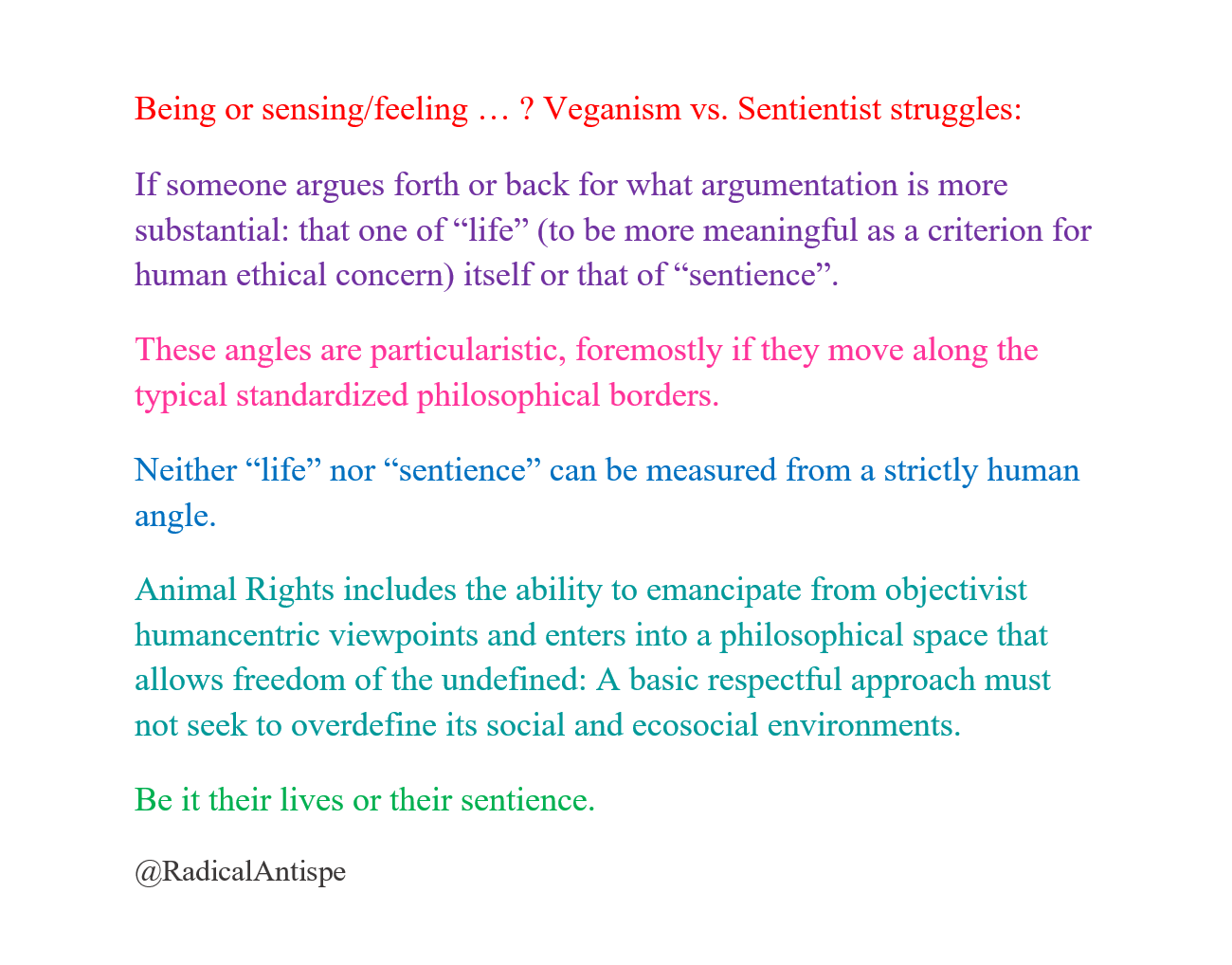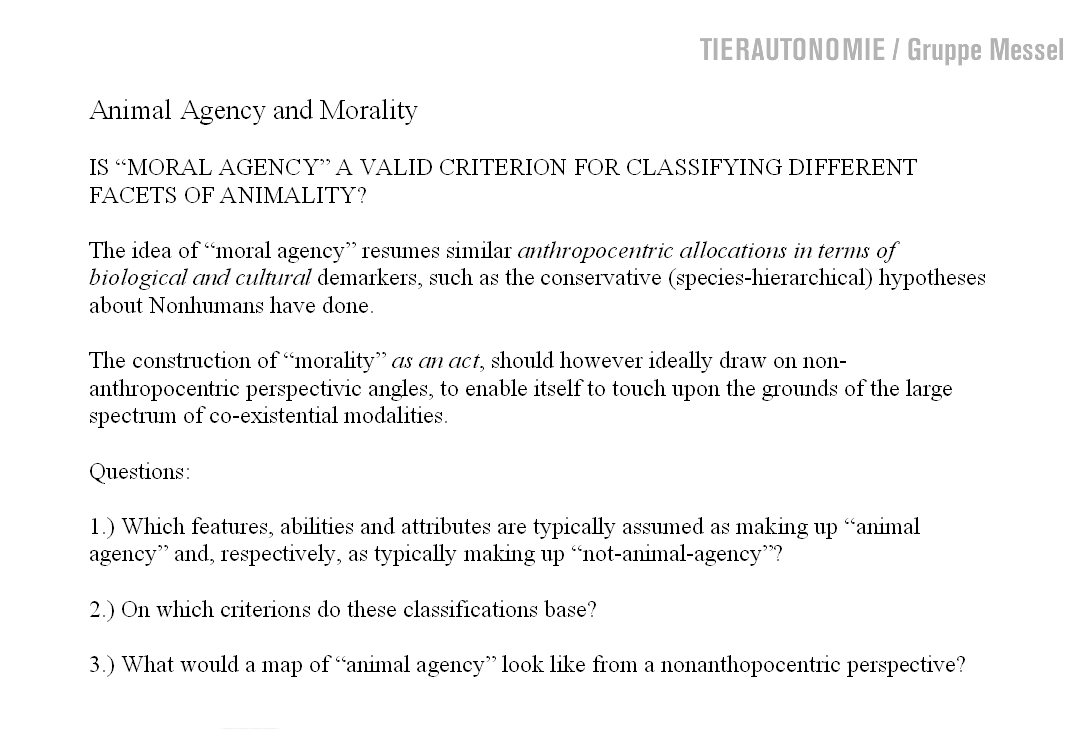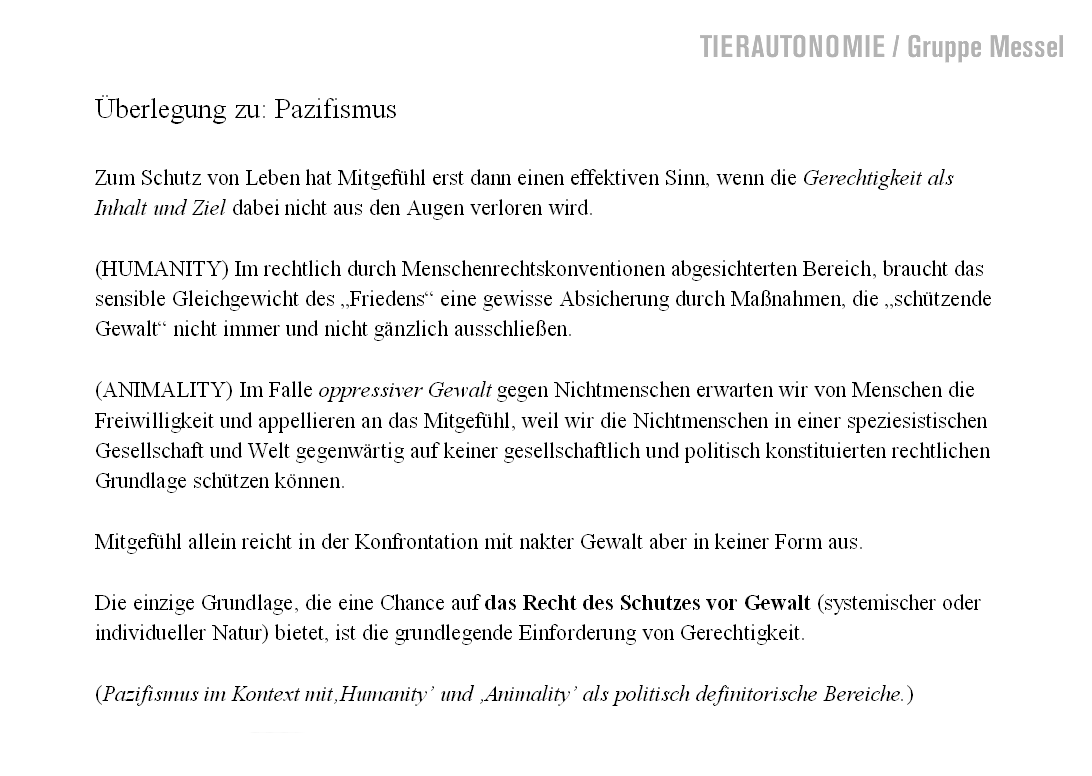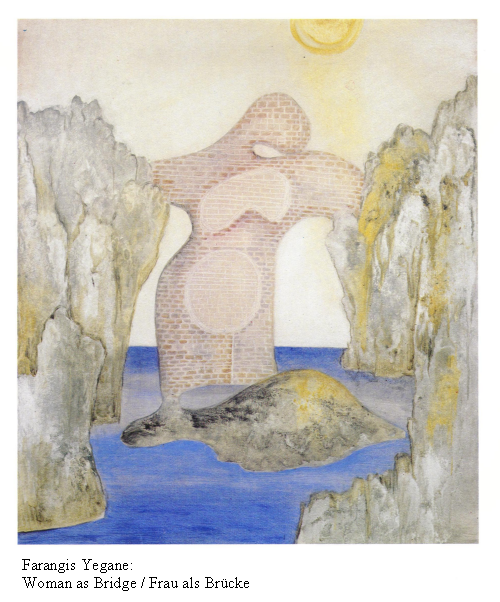Wenn Nichtmenschen nicht autonom wären, und nur der Mensch es wäre, wann in der Evolution und womit hätte diese menschliche Autonomie dann angesetzt, und warum sollte tierliches Handeln und Denken nicht als vom Menschen und seiner Objektivitätswahrnehmung autonom anerkannt werden?
„Seinen eigenen Gesetzen folgend / early 17th cent.: from Greek autonomia, from autonomos ‘having its own laws,’ fromautos ‘self’ + nomos ‘law.’“ – Zoe Autonomos
Besitznahme durch Abwertung und Definition. Beraubung tierlicher Autonomie.
(Fragment)
Wir sprechen eher den Tieren ihre tierliche evolutionäre Autonomie ab, statt dass wir an totalitäre Strukturen in der Menschheit im Bezug auf Nichtmenschen und die natürliche Umwelt glauben. Unser Blick auf Nichtmenschen und die „Natur“ ist in einer Art verstellt, dass unsere Abwertungen vor uns selber akzeptabel erscheinen.
Der Missstand der Ungerechtigkeit ist, dass wir versuchen die tierliche Autonomie zu zerstören (physische Eingriffe und Maßnahmen) und mittels Speziesismus (geistig ideologisch) zu unterminieren.
„Besitz“ ist die Folge der Absprache tierlicher Autonomie.
„Tierverteidiger“ die für die physische Unversehrtheit von Nichtmenschen plädieren, den Nichtmenschen aber weiterhin ihre eigene tierliche Autonimie (vom Menschen und an und für sich) absprechen, betreiben eine unbewusste radikale Form des Anthropozentrismus und des Speziesismus.
Wir verbinden den Würdebegriff mit der Fähigkeit eines eigenen, unabhängigen Daseins (Autonomie).
Durch speziesistische Kunstgriffe bereiten wir den geistigen Boden in einer Gesellschaft vor, um den Besitzstatus eines Lebewesens zu legitimieren und als vertretbar erscheinen zu lassen.
—
Was ist unserem allgemeinen Verständnis nach Autonomie, siehe z.B. Wikipedia (für den vielleicht breitesten Allgemeinplatz) http://de.wikipedia.org/wiki/Autonomie?
—
Wenn Nichtmenschen etwas haben – „the wild and tamed beast“ – dann ist es Autonomie. Sie leben „von Natur aus“ in der Natur autonom – wenn wir sie nicht ihrer Freiheit berauben. Wir behaupten, Nichtmenschen seien Instinktbestimmt, und genau da setzt die Besitznahme durch arbitäre Abwertungsmechanismen ein: Wir machen uns Tiere nutzbar und „Untertan“, indem wir sie ihrer Existenzautonomie mit der Behauptung des Instinktverhaltens (kausaltiätsbestimmtes Verhalten) zu berauben versuchen.
Die Abhängigkeit von Lebensnotwendigkeiten als Instinktgeleitetheit zu interpretieren, ist eine Form der Minderbewertung der Angreifbarheit, der Verletzlichkeit und Bedingtkeit des Lebens – jedes Lebens. Jedes Lebewesen ist abhängig und bedingt, aber gleichzeitig auch autonom. Autonomie ist der zarte Keim der Verletzlichkeit tierlicher und menschliche Würde … .
Da ein Tier autonom handelt und denkt, ist es autotom. Der Vesuch der Eingrenzung tierlichen Denkens in anthopozentrisch definierte Parameter, ist eine Besitznahme durch die definitorische Interpretation tierlichen Denkens und Handelns.
—
Tierautonomie – tierliche Autonomie; ein paar eklektisch ausgewählte interessante Aspekte
Animal Autonomy:
In Veterenary Care:
Here I would simply suggest that “animal autonomy” is worthy of careful attention from philosophers and scientists and veterinarians. Animals are self-governing and make meaningful choices, in ways very similar to humans. As with our fellow humans, we should strive to understand and respect the preferences of other creatures. Research in ethology is continuing to explore how to understand animal preferences and how these preferences are expressed in observable behaviors. It is worth noting, too, that although the language of “autonomy” has not yet been strongly present in the veterinary literature, the concept has been important in the animal ethics literature more broadly. Tom Regan, for example, talked in his ground-breaking The Case for Animal Rights(1983) about animals as autonomous beings, with their own interests and desires. Regan even includes a very interesting discussion of what he calls “preference autonomy” and explores some of the ways in which autonomy in animals is different from autonomy in humans.
Animals and Autonomy. Can this vitally important ethical concept be meaningfully applied to animals? Jessica Pierce, Ph.D. in All Dogs Go to Heaven
http://www.psychologytoday.com/blog/all-dogs-go-heaven/201303/animals-and-autonomy
—
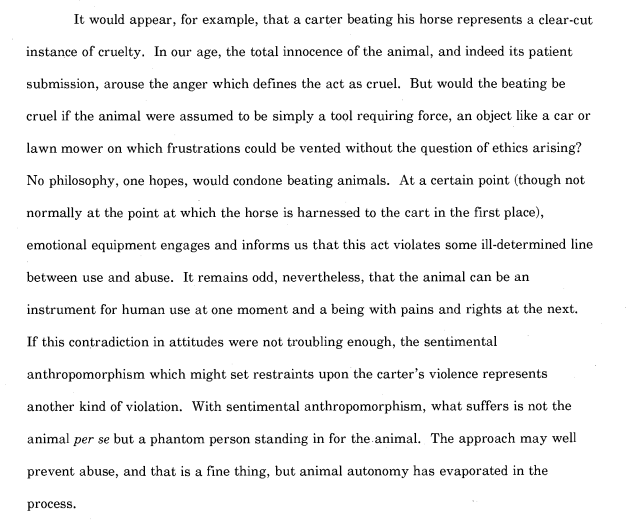
Animal Sanctitiy and Animal Sacrifice: How Post-Dawinian Fiction Treats Animal Victosm by Marian Scholtmeyer, Dissertation, 1989, pp. 57.
—
Animal Ethics:
Kantian ethics is normally not the place to look for an account of direct moral obligations towards animals, as Kant claimed that we only owe animals indirect moral duties, out of respect towards the rest of humanity. In chapter four, I consider modern reinterpretations of Kant’s arguments to provide support for the claim that animals should be considered ends-in-themselves. I argue that despite the strength of these accounts, the concept of agency and selfhood that I support provides a better foundation for claiming animals as ends-in-themselves, and that respect for animal autonomy can be grounded on a Kantian argument for the respect of autonomy more broadly. I claim that in virtue of their agency and selfhood, animals should be considered ends-in-themselves, thereby including them in the moral community. My view is novel in that it includes agency, selfhood and autonomy as those features which make anyone, human or nonhuman, morally considerable.
Agency and Autonomy: A New Direction for Animal Ethics by Natalie Evans. Dissertation.
https://uwspace.uwaterloo.ca/bitstream/handle/10012/8158/evans_natalie.pdf?sequence=1
—
Animal Rights / Animal Liberation
How can I save an Animal today or stop these atrocities now? Even for just a few critters. Because that’s the context we so often miss. It’s about Animal autonomy, not about how the government turns on the people that care about the Animals. But while I’m on the subject, it’s nothing new!
Walter Bond, Green is the New Rage, http://supportwalter.org/SW/index.php/2011/06/24/green-is-the-new-rage/
—
Animal Caregiving
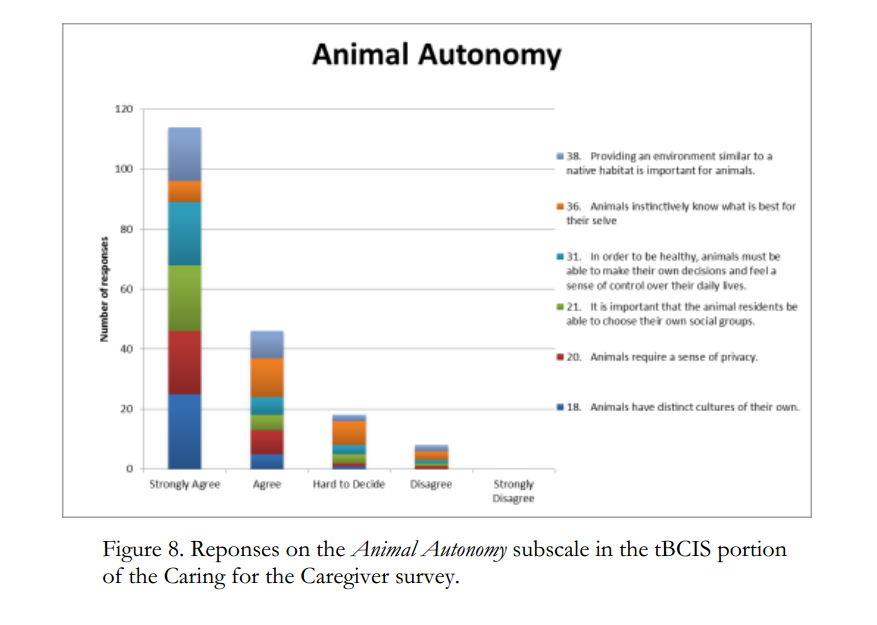 Kerulos Center Caring for the Caregiver Project. The project’s overarching goal is to foster awareness and support for animal care organizations and caregiver wellbeing to help achieve the vision of a compassionate, ethical, trans-species society founded on mutual wellbeing.
Kerulos Center Caring for the Caregiver Project. The project’s overarching goal is to foster awareness and support for animal care organizations and caregiver wellbeing to help achieve the vision of a compassionate, ethical, trans-species society founded on mutual wellbeing.
http://kerulos.org/wp-content/uploads/2013/12/Kerulos-Caring-for-Caregiver-Report-Final.pdf
Alle Links: 25. März 2014.
